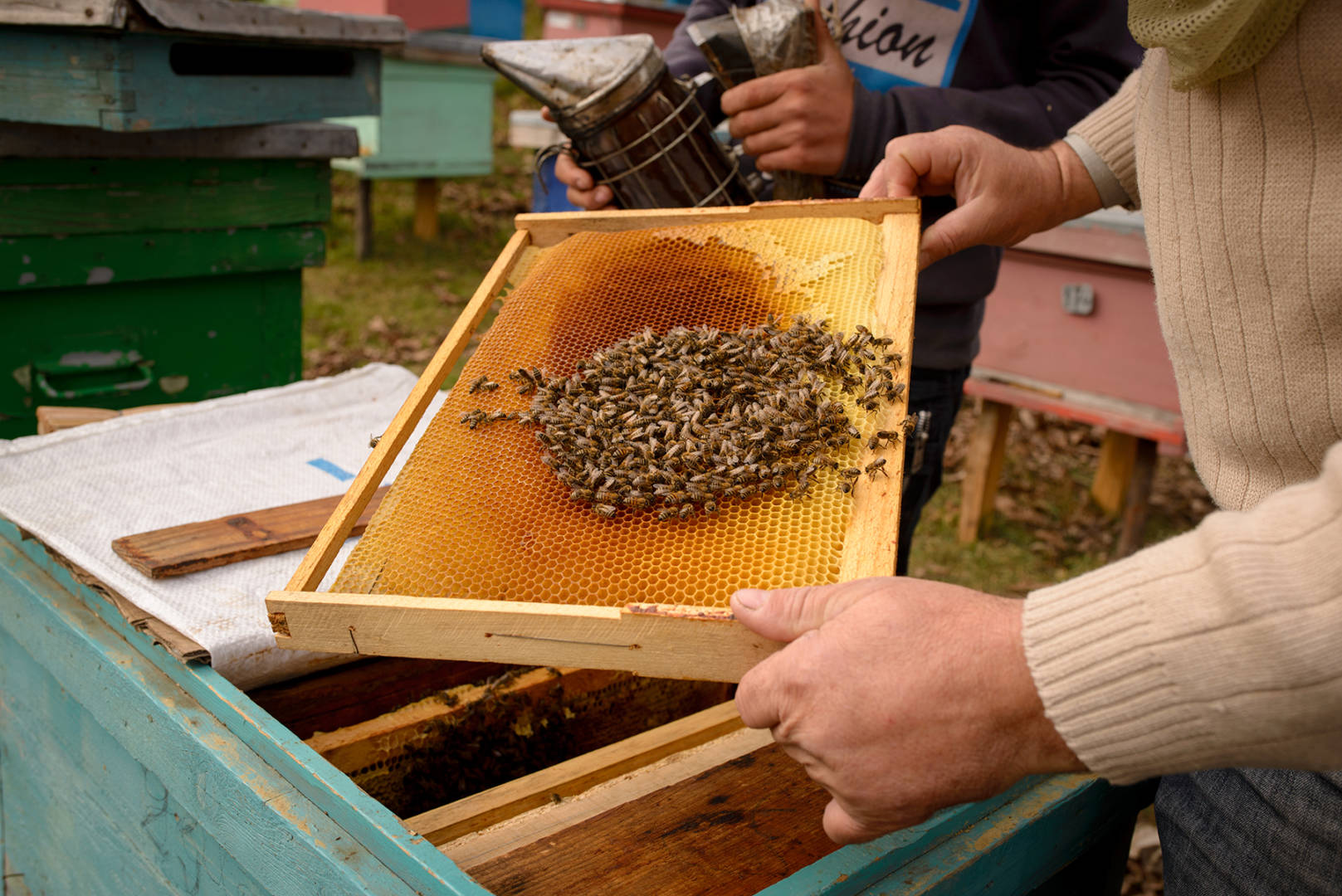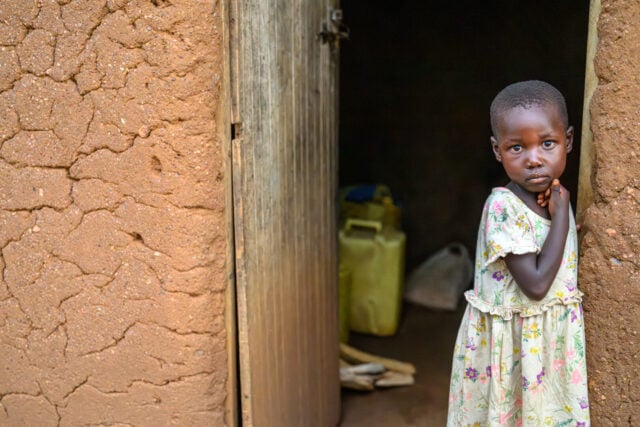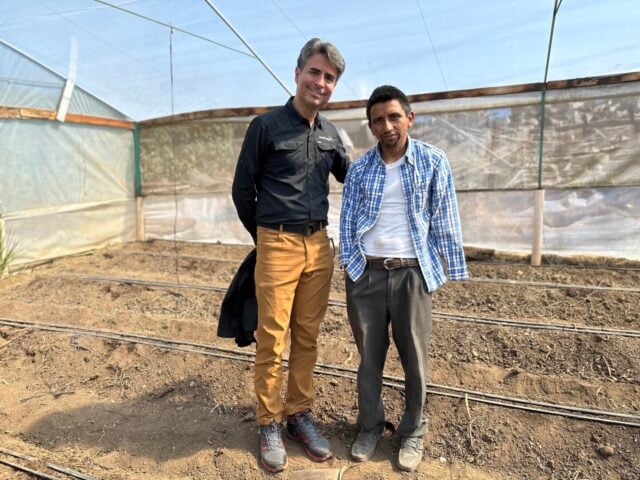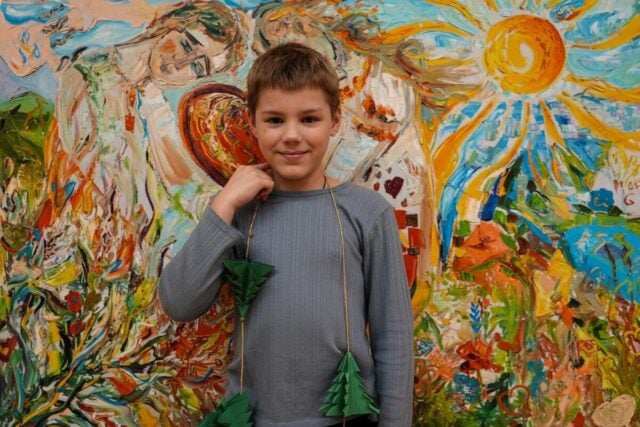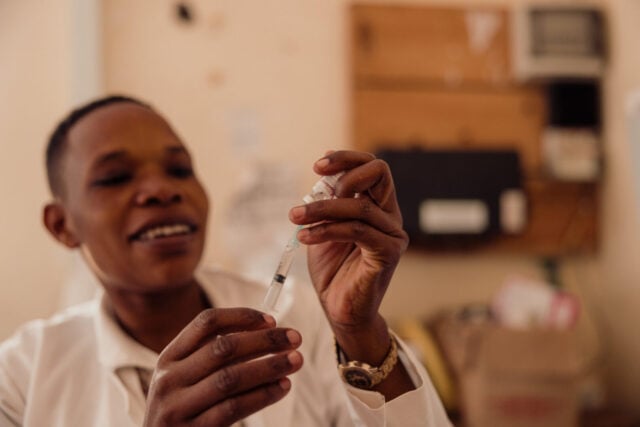There’s more to Saint Valentine than Valentine’s Day, romance, and love. He’s also the patron saint of beekeepers — charged with ensuring the sweetness of honey and the protection of beekeepers.
Families in Romania’s northeast region are taking advantage of ideal natural conditions for beekeeping. Isolated and often impoverished due to few economic opportunities, these families are finding that the future now promises to be as sweet as, well, honey.
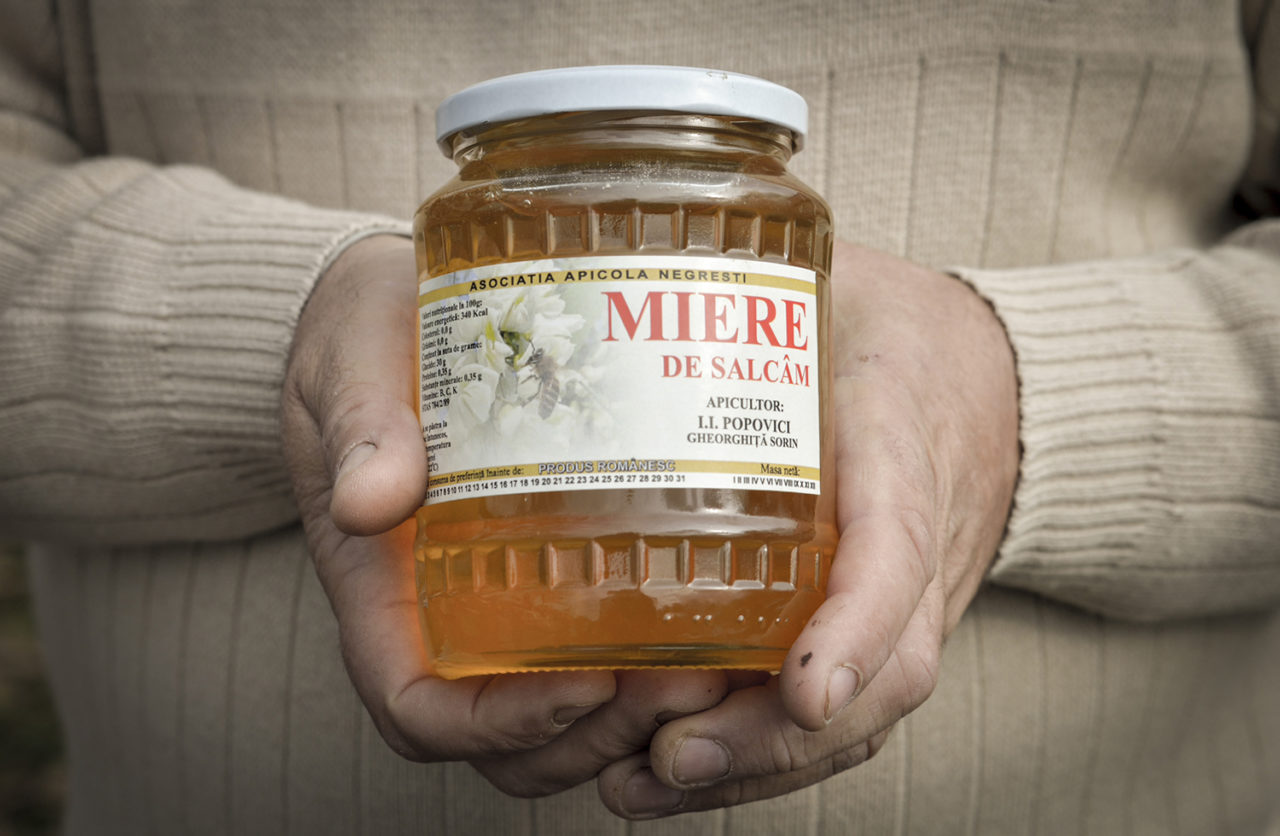 In his tidy home, 46-year-old Sorin Popovici’s living room shelves sparkle with jars of golden miere — the precious honey he has extracted from his hives. He is a founding member and president of the local beekeeping association, which World Vision helped launch. (©2013 World Vision/photo by Laura Reinhardt)
In his tidy home, 46-year-old Sorin Popovici’s living room shelves sparkle with jars of golden miere — the precious honey he has extracted from his hives. He is a founding member and president of the local beekeeping association, which World Vision helped launch. (©2013 World Vision/photo by Laura Reinhardt)
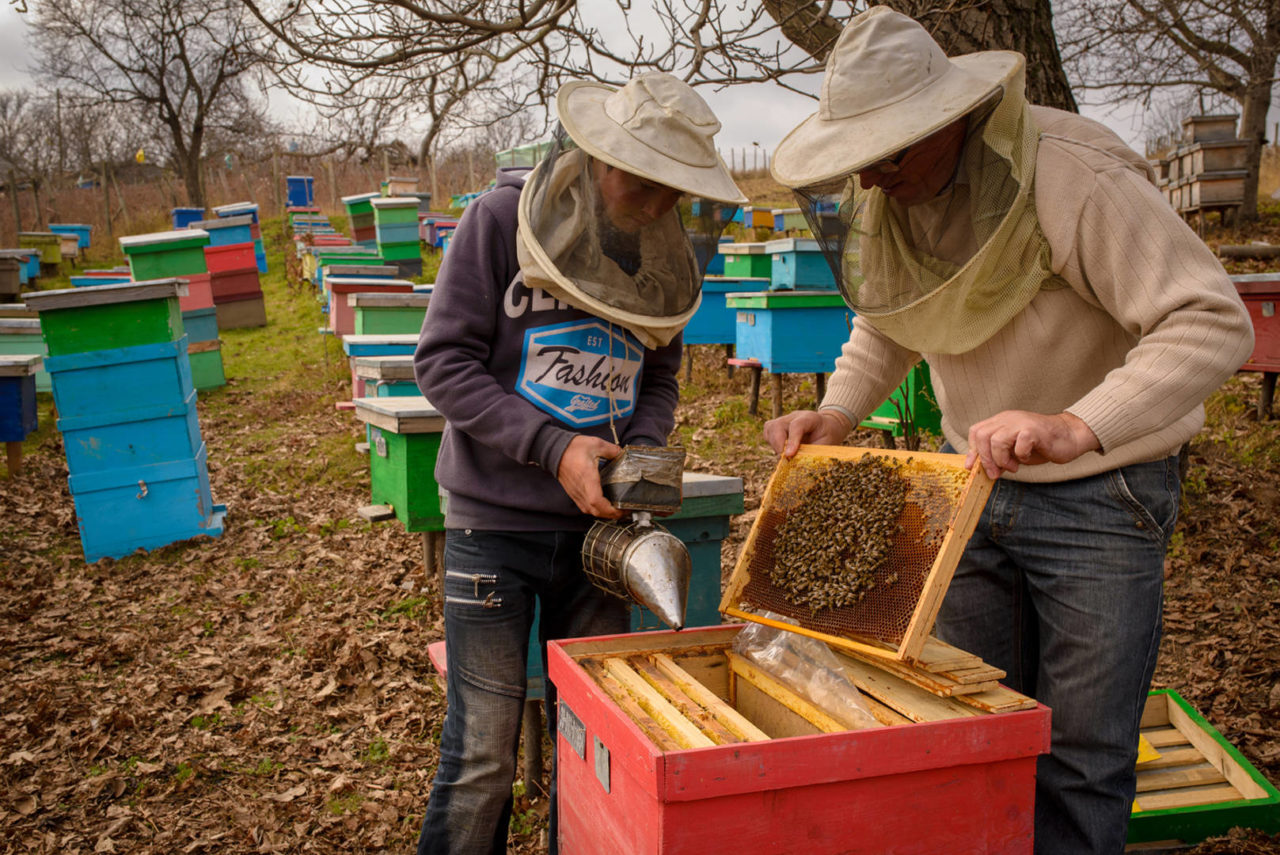 Sorin teaches his 16-year-old son, Danut, how to manage the bees. Sorin also shares his expertise freely with families starting out in the bee business. (©2013 World Vision/photo by Laura Reinhardt)
Sorin teaches his 16-year-old son, Danut, how to manage the bees. Sorin also shares his expertise freely with families starting out in the bee business. (©2013 World Vision/photo by Laura Reinhardt)
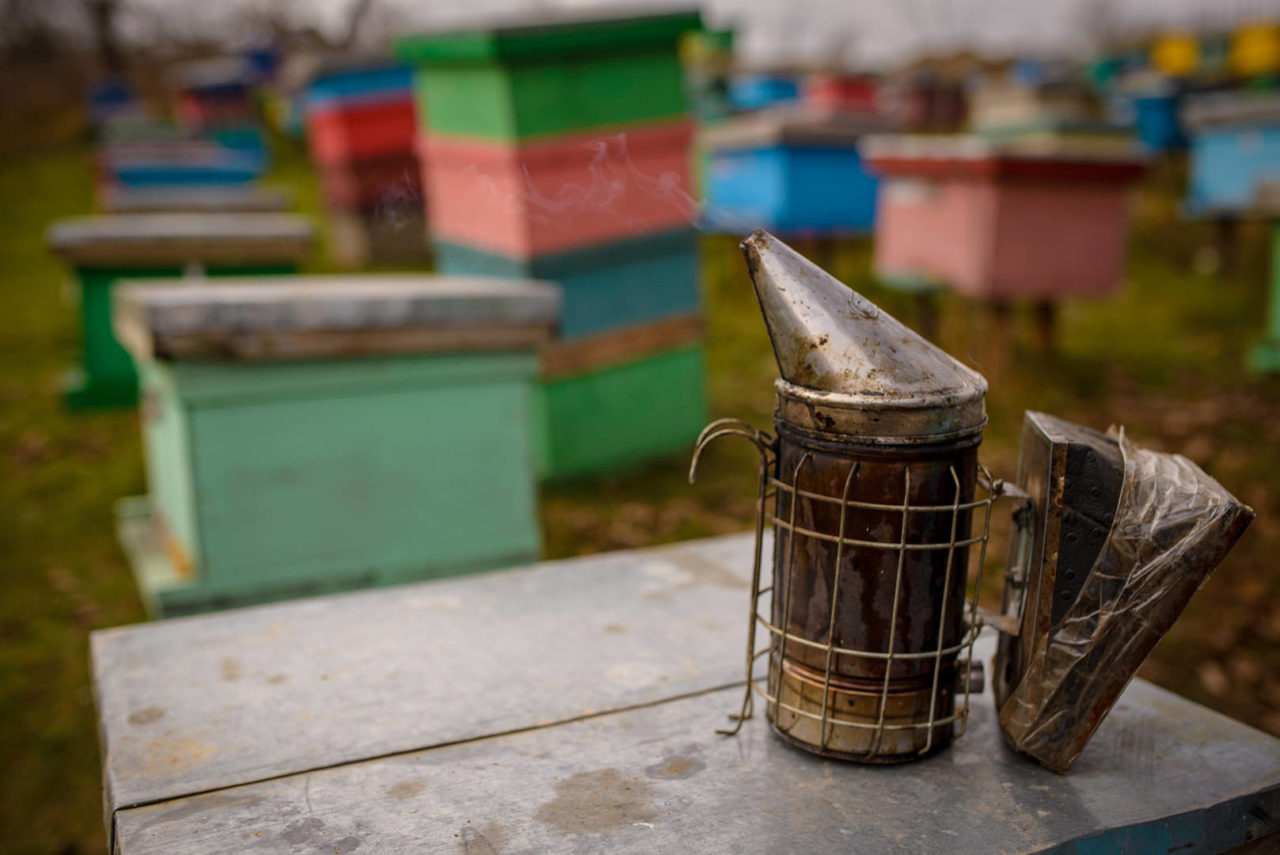 The Popovici family manages 100 hives behind their house, starting before World Vision came to this region. Today World Vision provides new beekeepers with training, five hives, and basic equipment to start their own businesses. “If World Vision wasn’t here, fewer people would be participating,” Sorin says. “The majority couldn’t have done this alone.” (©2013 World Vision/photo by Laura Reinhardt)
The Popovici family manages 100 hives behind their house, starting before World Vision came to this region. Today World Vision provides new beekeepers with training, five hives, and basic equipment to start their own businesses. “If World Vision wasn’t here, fewer people would be participating,” Sorin says. “The majority couldn’t have done this alone.” (©2013 World Vision/photo by Laura Reinhardt)
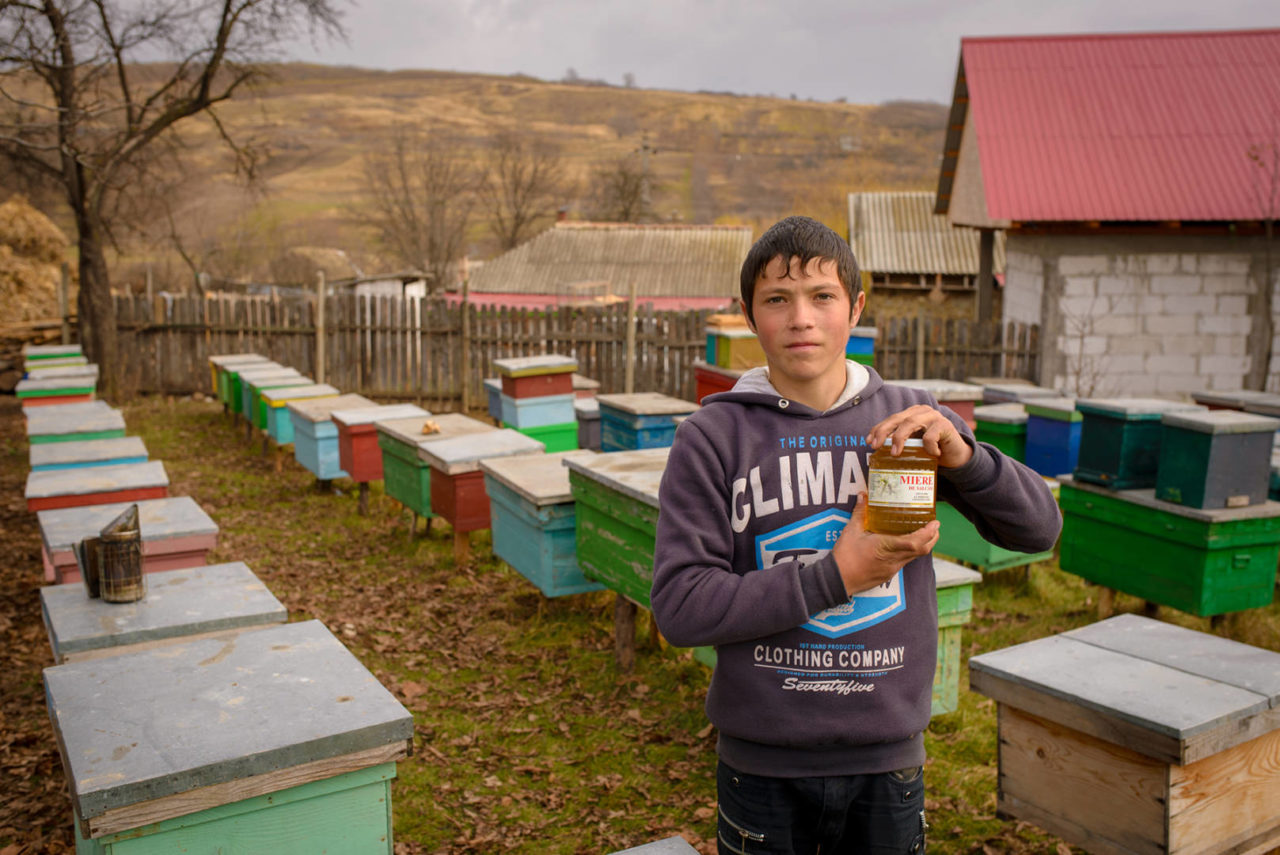 Sorin and Danut check the bees in late fall. They sell their honey by order and at local markets. And as part of the European Union, Romania’s beekeepers can now sell their products throughout Europe. (©2013 World Vision/photo by Laura Reinhardt)
Sorin and Danut check the bees in late fall. They sell their honey by order and at local markets. And as part of the European Union, Romania’s beekeepers can now sell their products throughout Europe. (©2013 World Vision/photo by Laura Reinhardt)
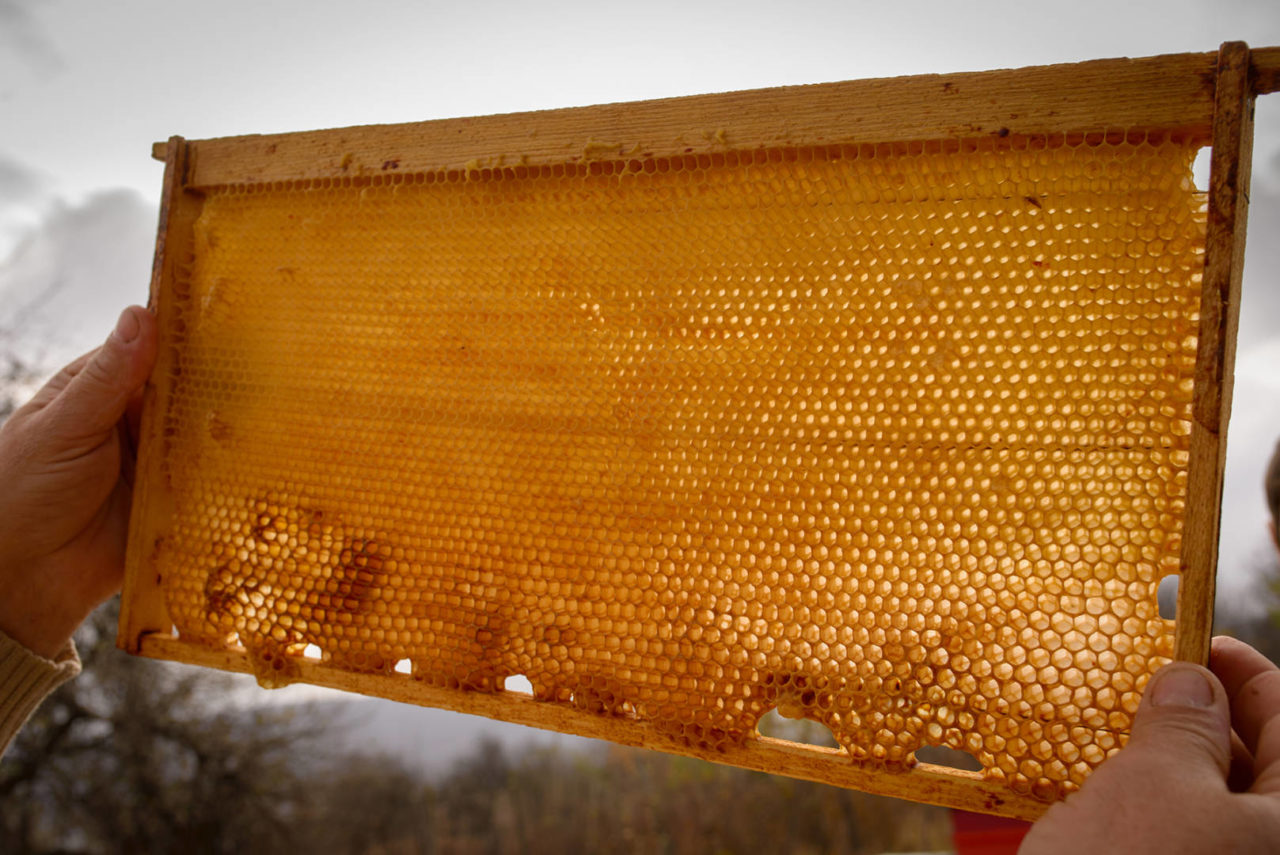 There’s more to St. Valentine than Valentine’s Day, romance, and love. He’s also the patron saint of beekeepers — charged with ensuring the sweetness of honey and the protection of beekeepers. Sorin started the local beekeeping association in 2010 but lacked the support and logistics he needed to expand the association. World Vision helped Sorin build the association, which today has 62 members — and is expected to continue to grow. (©2013 World Vision/photo by Laura Reinhardt)
There’s more to St. Valentine than Valentine’s Day, romance, and love. He’s also the patron saint of beekeepers — charged with ensuring the sweetness of honey and the protection of beekeepers. Sorin started the local beekeeping association in 2010 but lacked the support and logistics he needed to expand the association. World Vision helped Sorin build the association, which today has 62 members — and is expected to continue to grow. (©2013 World Vision/photo by Laura Reinhardt)
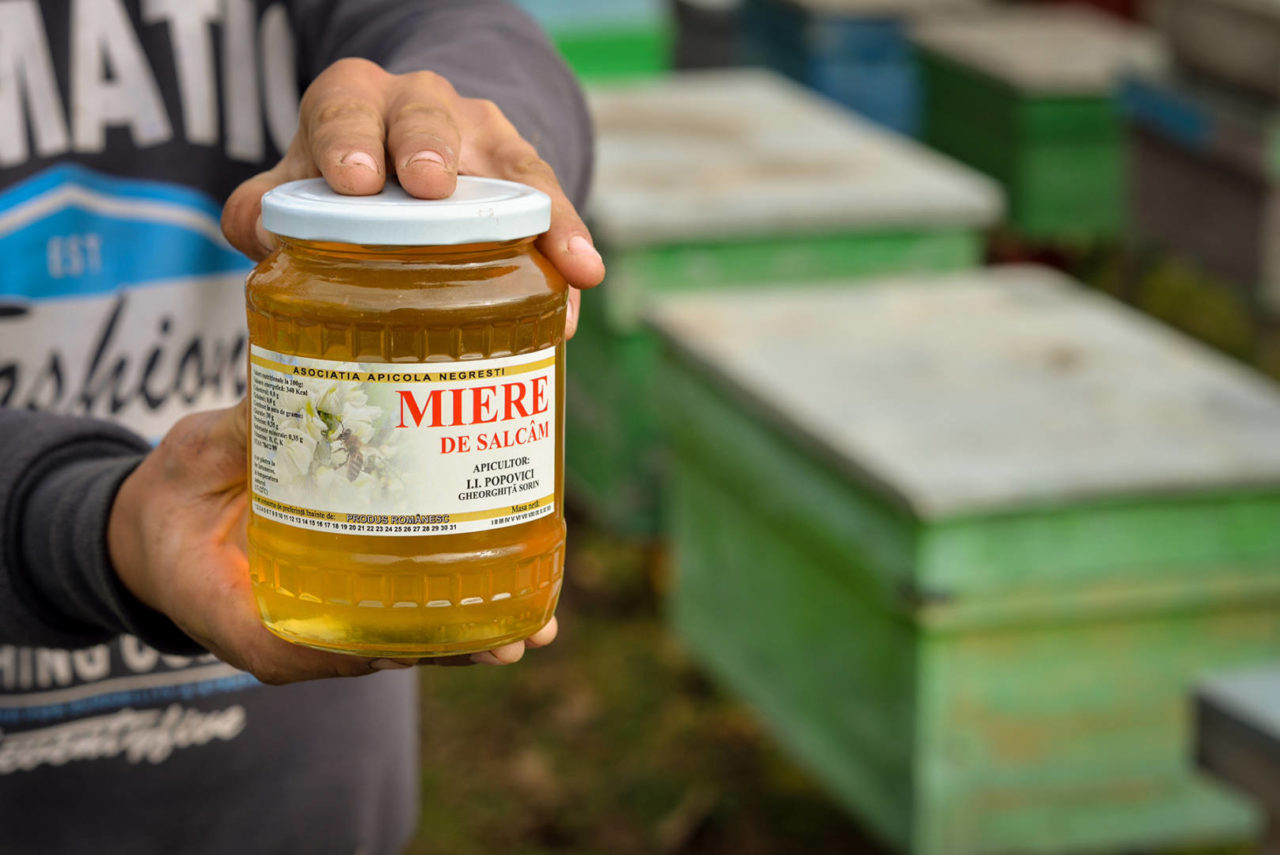 Danut is learning the honey trade as he works alongside his father. Danut is considered a volunteer, but when he turns 18 he plans to become professionally certified as a beekeeper. (©2013 World Vision/photo by Laura Reinhardt)
Danut is learning the honey trade as he works alongside his father. Danut is considered a volunteer, but when he turns 18 he plans to become professionally certified as a beekeeper. (©2013 World Vision/photo by Laura Reinhardt)
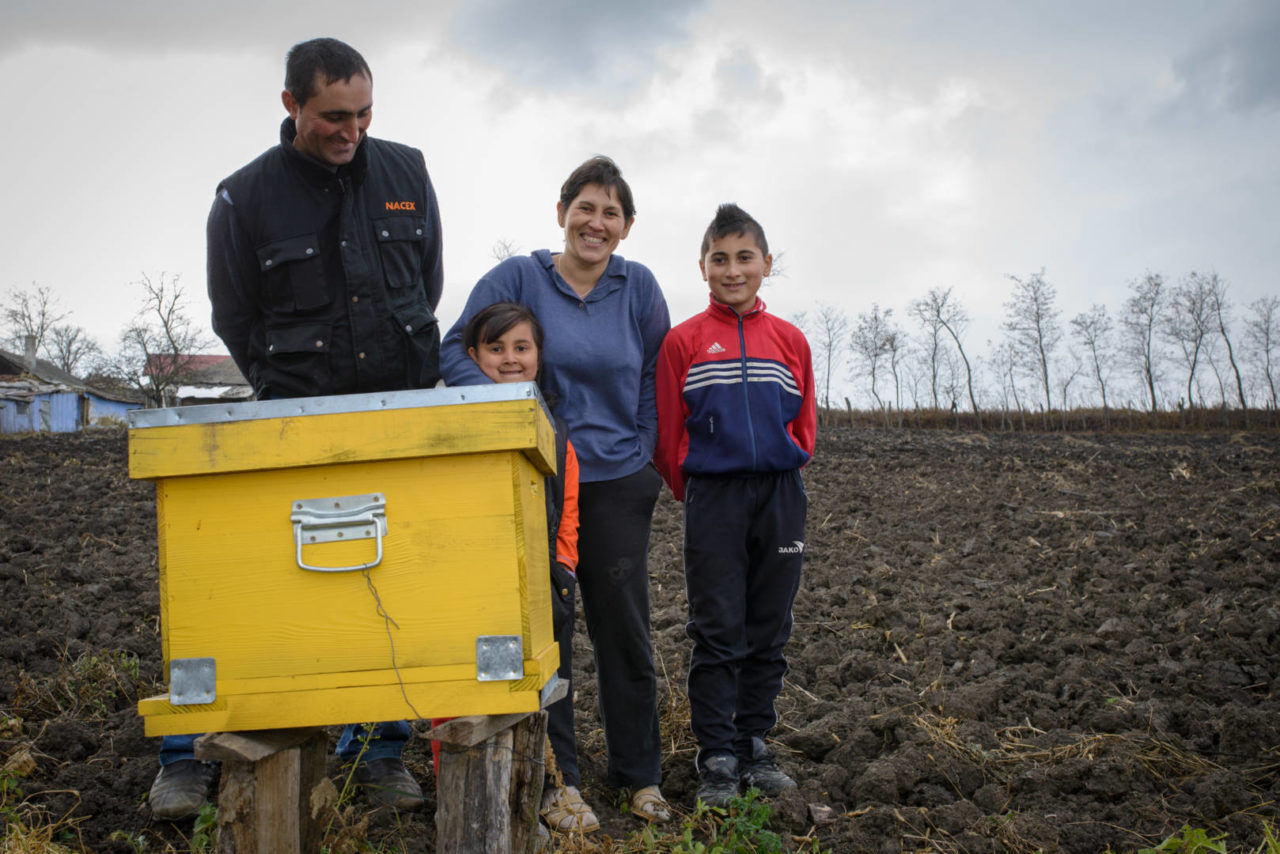 Ghearchita Barbuta, 36, just completed his first year as a beekeeper. The father of two daughters recalls that he didn’t believe he would receive the free hives from World Vision “until I saw the hives at my home.” Last year, the hives produced enough honey to sell some, and he plans to continue to grow his small business. (©2013 World Vision/photo by Laura Reinhardt)
Ghearchita Barbuta, 36, just completed his first year as a beekeeper. The father of two daughters recalls that he didn’t believe he would receive the free hives from World Vision “until I saw the hives at my home.” Last year, the hives produced enough honey to sell some, and he plans to continue to grow his small business. (©2013 World Vision/photo by Laura Reinhardt)
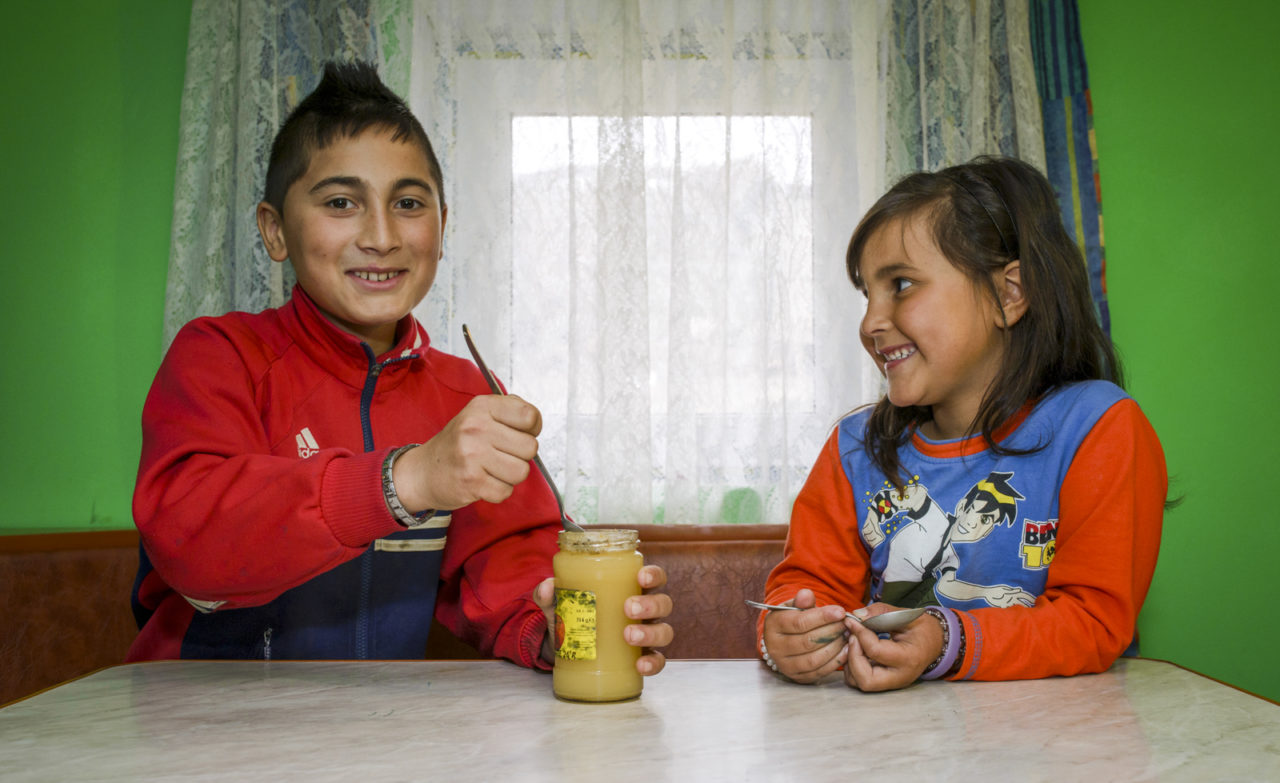 Andrei Barbuta, 11, and his sister, 5-year-old Georgiana, enjoy honey by the spoonful. Andrei likes to watch his father care for the hives. “He smokes the bees to keep them calm,” Andrei says. (©2013 World Vision/photo by Laura Reinhardt)
Andrei Barbuta, 11, and his sister, 5-year-old Georgiana, enjoy honey by the spoonful. Andrei likes to watch his father care for the hives. “He smokes the bees to keep them calm,” Andrei says. (©2013 World Vision/photo by Laura Reinhardt)
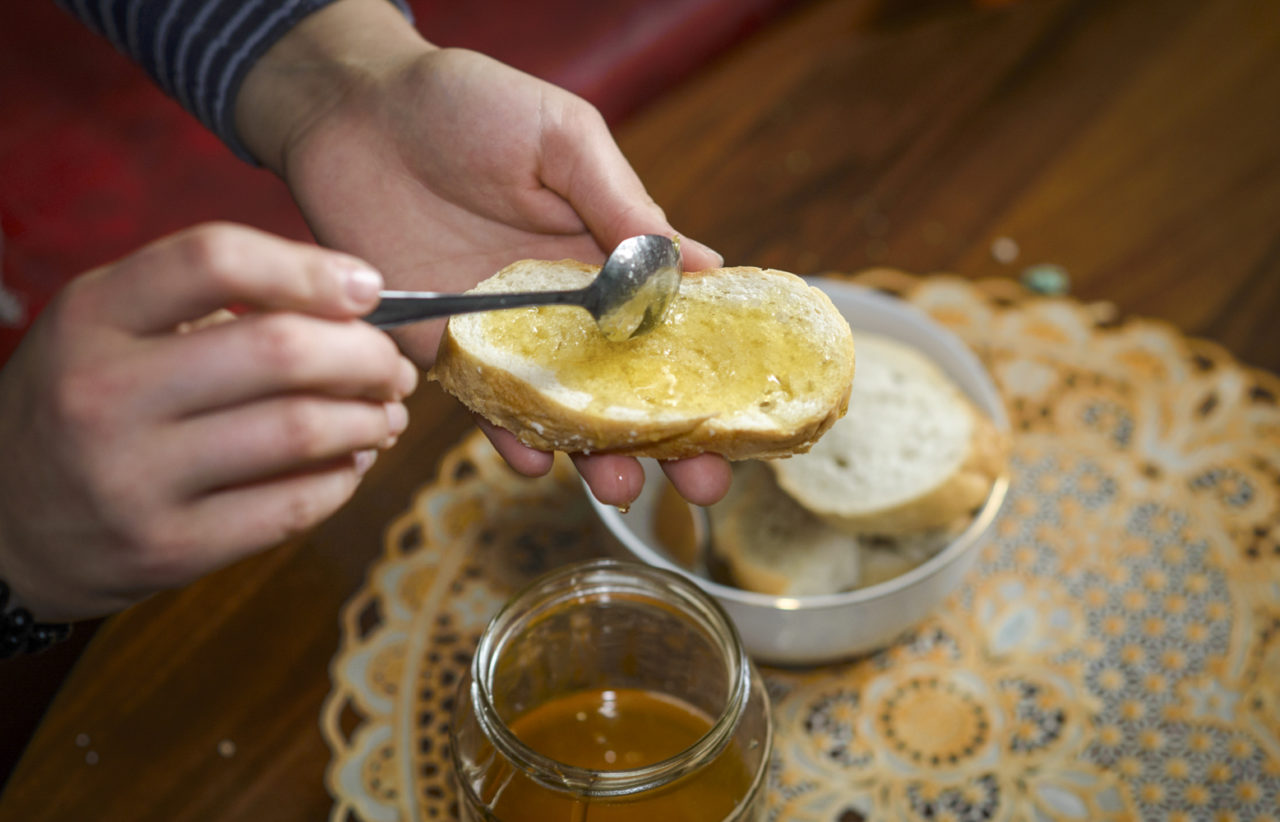 The Ciocan family has no car or cart — only a bicycle. So the parents plan to multiply their honey harvest in the next few years and use the earnings to pay for room and board so their daughter Bianca can attend high school in a nearby city. Meanwhile, bread and honey make a healthy family snack. (©2013 World Vision/photo by Laura Reinhardt)
The Ciocan family has no car or cart — only a bicycle. So the parents plan to multiply their honey harvest in the next few years and use the earnings to pay for room and board so their daughter Bianca can attend high school in a nearby city. Meanwhile, bread and honey make a healthy family snack. (©2013 World Vision/photo by Laura Reinhardt)
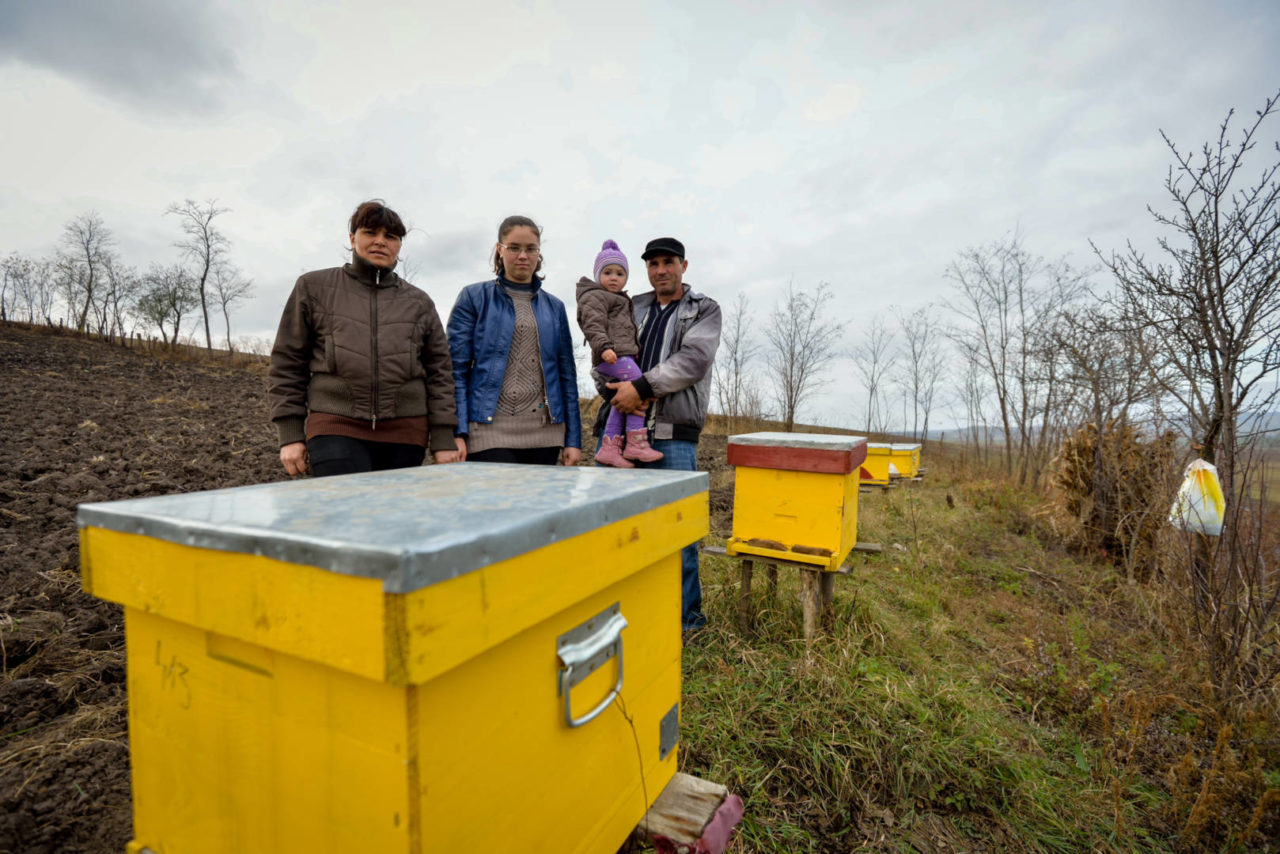 Ionez Ciocan, the father, was attracted to the honey business because the bees are easier to manage than farm animals. “Thanks to World Vision, we can provide honey on the table every day,” he says. “We stopped buying sugar.” (©2013 World Vision/photo by Laura Reinhardt)
Ionez Ciocan, the father, was attracted to the honey business because the bees are easier to manage than farm animals. “Thanks to World Vision, we can provide honey on the table every day,” he says. “We stopped buying sugar.” (©2013 World Vision/photo by Laura Reinhardt)
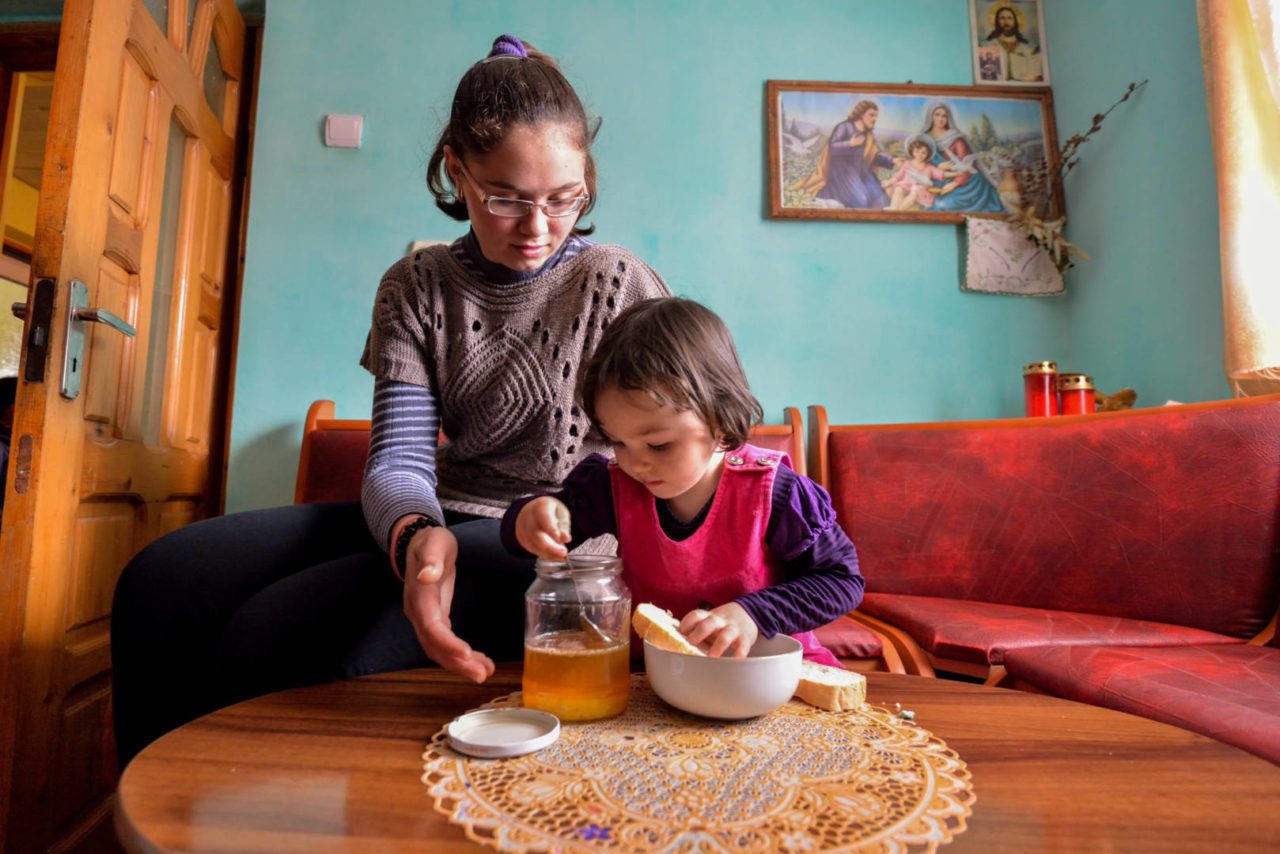
Gabriela and her sister, Bianca, eat the honey their parents collect.
Gabriela Ciocan, 3, and her sister, 14-year-old Bianca, have daily access to the honey their parents collect. “We haven’t sold any yet,” Ionez says with a laugh. “In our household, we like to eat honey.” (©2013 World Vision/photo by Laura Reinhardt)
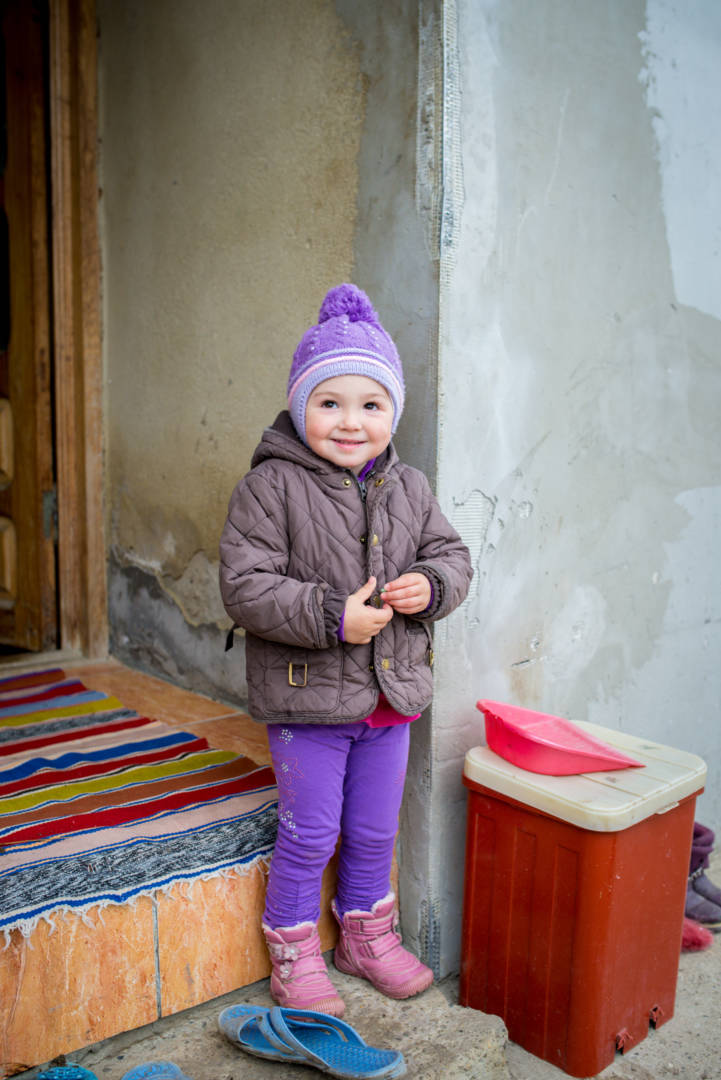 As her sister sets her sights on high school, Gabriela’s future also is looking up. Their parents have a goal of managing 25 to 35 hives in the near future. “We want to help get the girls a better education,” Ionez says. “And if this goes well, we’ll think larger.” (©2013 World Vision/photo by Laura Reinhardt)
As her sister sets her sights on high school, Gabriela’s future also is looking up. Their parents have a goal of managing 25 to 35 hives in the near future. “We want to help get the girls a better education,” Ionez says. “And if this goes well, we’ll think larger.” (©2013 World Vision/photo by Laura Reinhardt)
